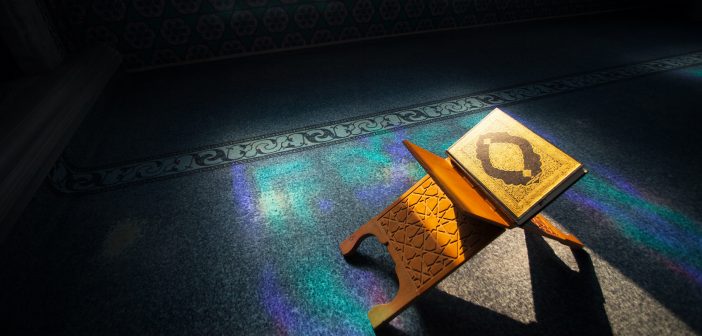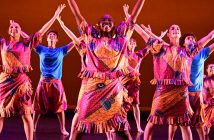Last year, Mohamed Alsiadi, director of the Arabic Language and Cultural Studies program at Fordham, spent many Ramadan nights in the company of friends in New Jersey, breaking fast among Allepian Christians and Jews who, following a tradition from Syria, would cook meals for Muslims during the holiday. Alsiadi recalls eating together, praying together, and doing late night shopping, as many shops in Patterson and Clifton would stay open late to accommodate Muslim shoppers who had been fasting from sunrise to sunset.
This week, the sighting of the crescent moon will mark the holiest month in the Muslim calendar, and Ramadan will commence. Muslims believe that the scripture was revealed to the prophet Mohammed during Ramadan; the annual observance of the holiday is one of the five pillars of Islam. During this month, Muslims fast from food, drink, smoking, and sex between the hours of dawn and dusk, and they aim to abstain from gossip, arguments, and lying. Ramadan is also a time where Muslims focus on charity and donating their time and money in service of others.
While the basic customs and traditions of the holiday remain the same this year, COVID-19 restrictions will prevent Alsiadi and other Muslims from sharing those traditions with loved ones.
“I am psychologically preparing to spend Ramadan at home,” said Alsiadi, recalling that even during the Islamist uprising in Syria from 1979 to 1982, he was still able to visit the mosque. “Those were difficult times, but even with daily shootings, we were still able to go to the mosque and pray. We had comfort in being able to sit together, to read the Quran together among our elders.”
Now, mosques and other places of worship around the world have closed. “The mosques cry when there are no worshippers,” says Alsiadi. “The impact is not just on us as individuals, but it’s also on the house of God.”
But, he said, Muslims can still find solace in the symbolic togetherness of being called to prayer at the same time and facing Mecca when they pray separately in their homes.
Students and parents face particular challenges during Ramadan, not just this year but every year, said Zein Murib, Ph.D., assistant professor of Political Science.
“Ramadan often falls during the school year. Last year, Ramadan took place during finals, and I heard from many students who felt that they were alone in negotiating fasting and prayer alongside the rigors of late-night study sessions and back-to-back exams,” said Murib. “This year will be no different, and I wonder how finals and the compounded circumstances of COVID-19 and New York’s pause will impact Fordham’s Muslim students.”
Alsiadi said that though this is an unprecedented and challenging time, we all have to do our part to keep each other safe. This includes being careful about our words.
“Islam is peace. If we launch a war against a virus, then that lends itself to discriminating against people who are sick,” he said. “We have to be careful of that.”
Despite all of the disruptions this year, Ramadan remains a time “that we do things from our hearts,” said Alsiadi. “We have to be patient. Ramadan is an opportunity for Muslims to get an infinite amount of hasanats (credit for good deeds) by cleansing their soul by helping around. We must share what we have. If you have enough, share with those who have nothing.”
Tumultuous times can offer an opportunity to deepen one’s spiritual practice. This has been a focus for Muhammad Faruque, Ph.D., George Ames Endowed Postdoctoral Fellow at Fordham, who is spending Ramadan away from his family this year.
“One should meditate on the question of fasting, ponder the inner significance of an ascetic practice— what it does to the body and the soul, and how it can make oneself a better, compassionate human being.” Faruque said. “For me, this Ramadan will be an opportunity to retreat into the inner sanctum of the self and explore the possibilities of inner happiness.”



